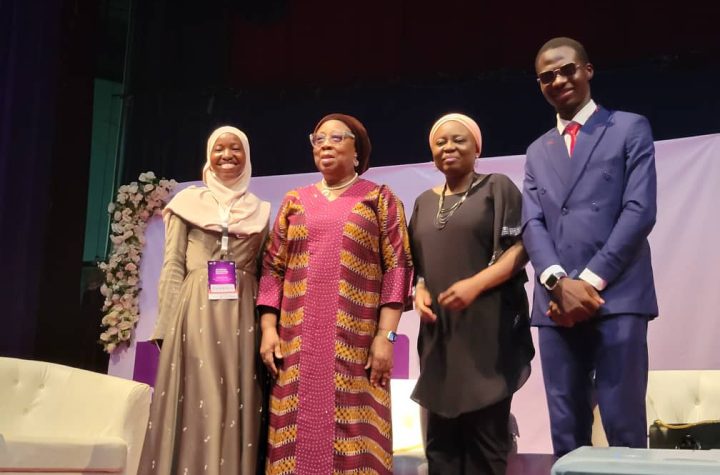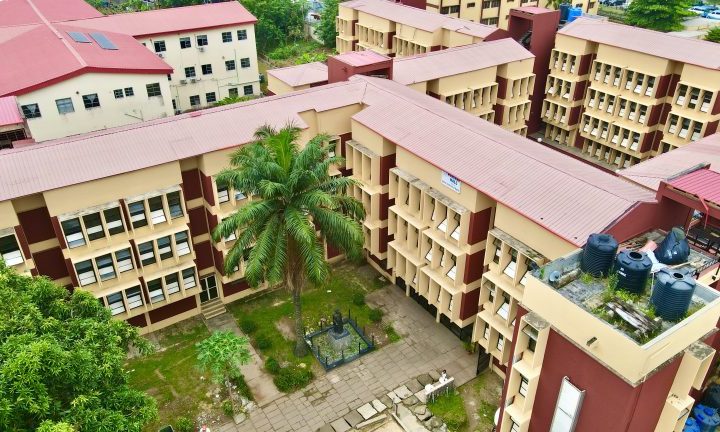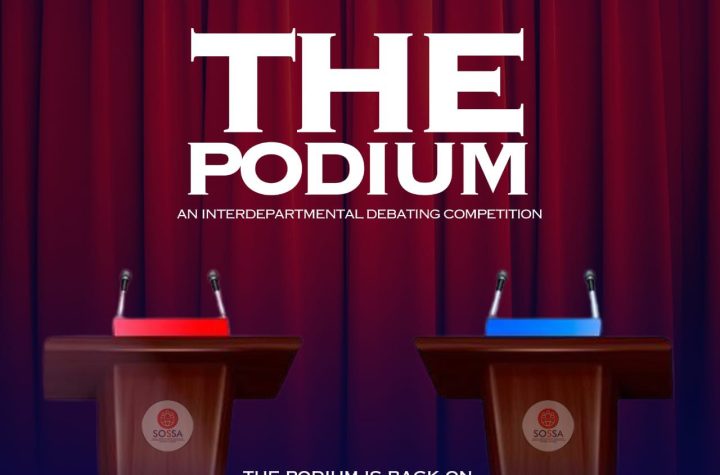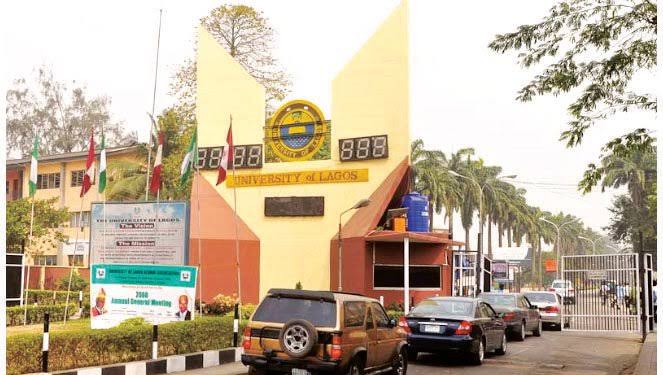
By Winifred Umoren, Iseoluwa Onadipe, Esther Eiyegbeni and Adebimpe Omoh

Many students come into school with the desire to graduate with a first-class degree, but for David Akanmu, it was different. When he got into school, he aimed to expand his knowledge, but little did he know that he would achieve a perfect CGPA of 5.00 in civil engineering.
From his childhood, David’s passion for knowledge knew no bounds. In secondary school, he found it challenging to choose between art, science, and commercial classes because he wished to learn everything. Finally, his love for mathematics drove him to pursue the sciences. Luckily, his family didn’t pressure him academically and gave him the space to explore.
However, life wasn’t all rosy. “It wasn’t until 2015 when I wrote GCE and failed that I realised that life is real,” he said with a forlorn look, “and if you fail, you’re not going to get into the university. If you fail, you are probably not going to achieve all the lofty goals that you’ve set for yourself. And that’s probably the most defining point in my life because I sat down and I thought about life and what I wanted to achieve. I realised that to an extent, I have control over my life.”
How It All Started
Guidance played a huge role in David’s academic excellence.
Though he described himself as an average student in secondary school, he entered the university with the mindset to work hard and smart. Bolaji Lawal, he said, was his biggest mentor.
“He took me through the ropes of academic performance, told me how to navigate school, and gave me materials. He was very kind, and he taught me stuff. I remember when I was speaking to him, I asked him, “If you were to start again, what would be the biggest lesson that you think you’ve learned?” “And he mentioned to me that if he had someone to guide him when he started, he thinks he would have done better, and he finished well.”
Inspired by Lawal’s advice, David sought out the best students in the 300 level to become his mentor.
The Power Of Balance
Maintaining his top position required more than just hard work; it needed balance.
“I’m a big advocate of the Pearson law of performance,” David said, referring to the strategies he created. “It states that when performance is measured, performance improves, and in studying, what I do is measure my performance. I realised that in school, an academic semester is usually around 14 weeks. Tests usually come around the 8th week, though my faculty lecturers usually start late, except you have people who are enthusiastic about us starting early. Exams usually come around the 12th week.
“To work around this, I had to create a simple sheet and write 3 columns. The courses in the first column, my level of competence after 6 weeks in the second column, and my level of competence after the 12 weeks in the third column. I’ll write all the courses and I’ll answer ‘How much do I understand this course?’”
By using this strategy, David could track and measure his understanding of each course before he sat for a test or exam. It not only helped him to excel academically but also allowed him to maintain a balance with his extracurricular commitments.
Passion For Social Impact
While achieving a perfect result wasn’t David’s primary focus, he also wanted to impact society.
“I believe my purpose on earth is essentially to contribute to the advancement of society and as such I did quite some things with my time to advance that purpose.”
This passion led him to co-found Sustainable Development Advocacy (SDA) at the University of Lagos alongside six others. The club’s focus was to increase the visibility of the United Nations’ Sustainable Development Goals (SDGs) on campus.
“I did a lot of volunteering work and in 2019, I came to learn about the United Nations SDGs and I realised that there was little publicity for them on campus. So many organisations were doing many things that were related to the SDGs but nobody was highlighting the fact that they were advancing the SDGs. And so, I came together with a group of people. I was not the only founder; we were six and we brainstormed ideas on how we could change the narrative and ensure that there’s more publicity on the SDGs on campus. That was really why we came together–to advance the SDGs.”
David and his team worked on projects such as clean-ups, teaching in rural community schools, and taking on climate justice campaigns, to list a few. Their dedication earned them recognition, as they were the first Nigerians to win the Millennium Ocean Prize, which provided funding for their climate justice campaign.
He supported this belief by mentioning that some of the funding SDA received was from people who saw the things the club did and were willing to give support. “If there’s any advice from this, I usually tell people that it’s better to start doing something first. When you start doing something, somebody can be willing to assist you as opposed to complaining about how hard everything is to start.”
Looking Ahead
As David opens up the next chapter of his life, he remains driven in his passion for social impact. “So, I’m pretty young. I just graduated. I’m starting my career. I’m not exactly so rigid on how I want my career to go. The biggest, broadest picture I can say is to be impactful to society. To mitigate, solve, and tackle, problems that are faced in society.”
He also intends to release his book ‘Roadmap to 5.00’ in February. In this book, he provides a detailed breakdown of the strategies and plans that enabled him to achieve academic excellence. It’s an initiative called “buy-a-book-for-someone,” encouraging parents to invest in the book, purchase it, and then give it to their children.
Lastly, he acknowledged the presence of God’s grace, attributing his hard work and smart work to Him.





More Stories
Mass Comm First Class Graduates: How Single Steps led to Triumph
FG needs a win-win streak to end ASUU strikes
What Do the Best University Students Do?